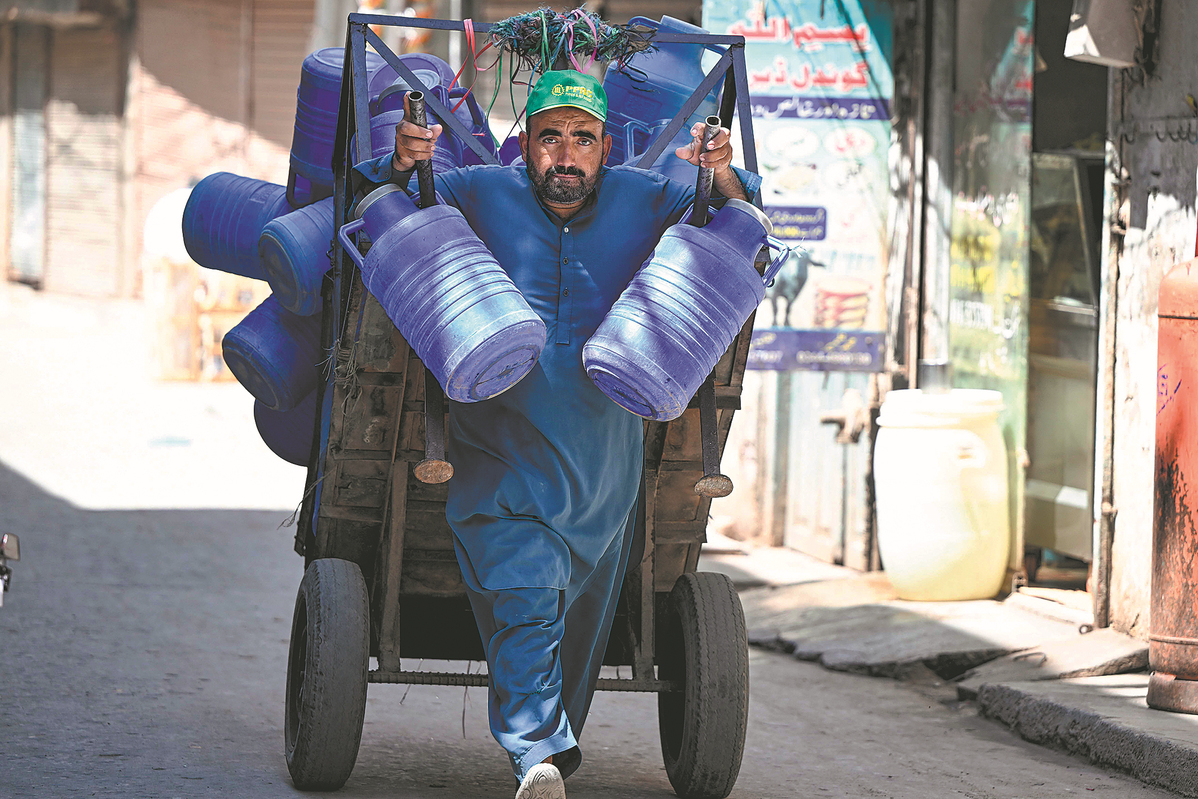Heat waves across Asia stoke health concerns, food security fears
Record temperatures affect people's daily lives, have impact on agriculture, highlight climate change challenges






Further risks
In neighboring Pakistan, mercury levels went as high as 53 C in the southern Sindh province.
The highest temperature ever recorded in Pakistan was 54 C in Turbat, Balochistan province, in 2017, the second highest temperature recorded in Asia and the fourth highest in the world, Sardar Sarfaraz, chief meteorologist at the Pakistan Meteorological Department, told China Daily.
In the wake of high temperatures and a heat wave in Punjab province, all public and private schools closed for seven days from May 25. However, schools were allowed to conduct scheduled exams with necessary precautions to ensure the safety of students, the provincial school education department said, according to Xinhua News Agency.
With a population of around 250 million, agriculture is the mainstay of Pakistan's economy, employing about 40 percent of the nation's labor force.
Agriculturalist Salman Shah Khagga recently told China Global Television Network (CGTN) that the heat wave in Pakistan is "causing significant stress to crops, especially vegetables. We are seeing a substantial reduction in yields for tomatoes, potatoes, cotton, and other staple crops, which will have a direct effect on the economy".
According to experts, crop losses may go beyond 30 percent this summer, causing food shortage as well as huge potential economic losses.
The Pakistani government has launched a public awareness campaign to counter the adverse impacts of the severe ongoing heat wave, according to Romina Khurshid Alam, coordinator to the Pakistani prime minister on climate change and environmental coordination.
Pakistan's climate is warming much faster than the global average, with a potential rise of 1.3 to 4.9 C by the 2090s over the 1986 to 2005 baseline, according to a World Bank expert panel on climate change, The Associated Press reported.
The country, which is one of the most vulnerable in the world to climate change, also faces the risk of heavier monsoon rains, in part because of its immense northern glaciers, which are now melting as temperatures rise.
This year's monsoon season will start in July, causing flash floods, according to Pakistan's National Disaster Management Authority.




















